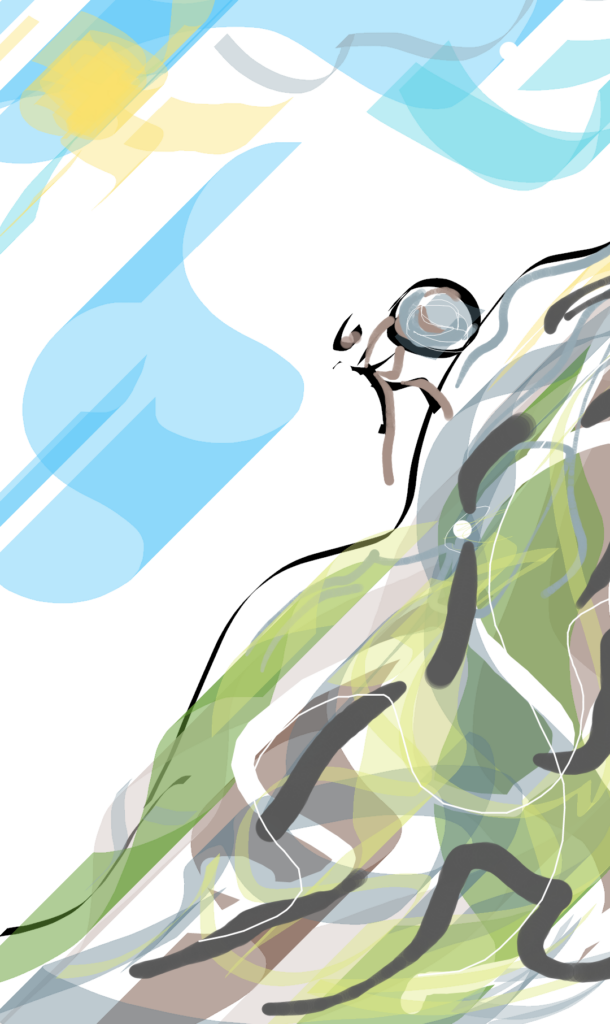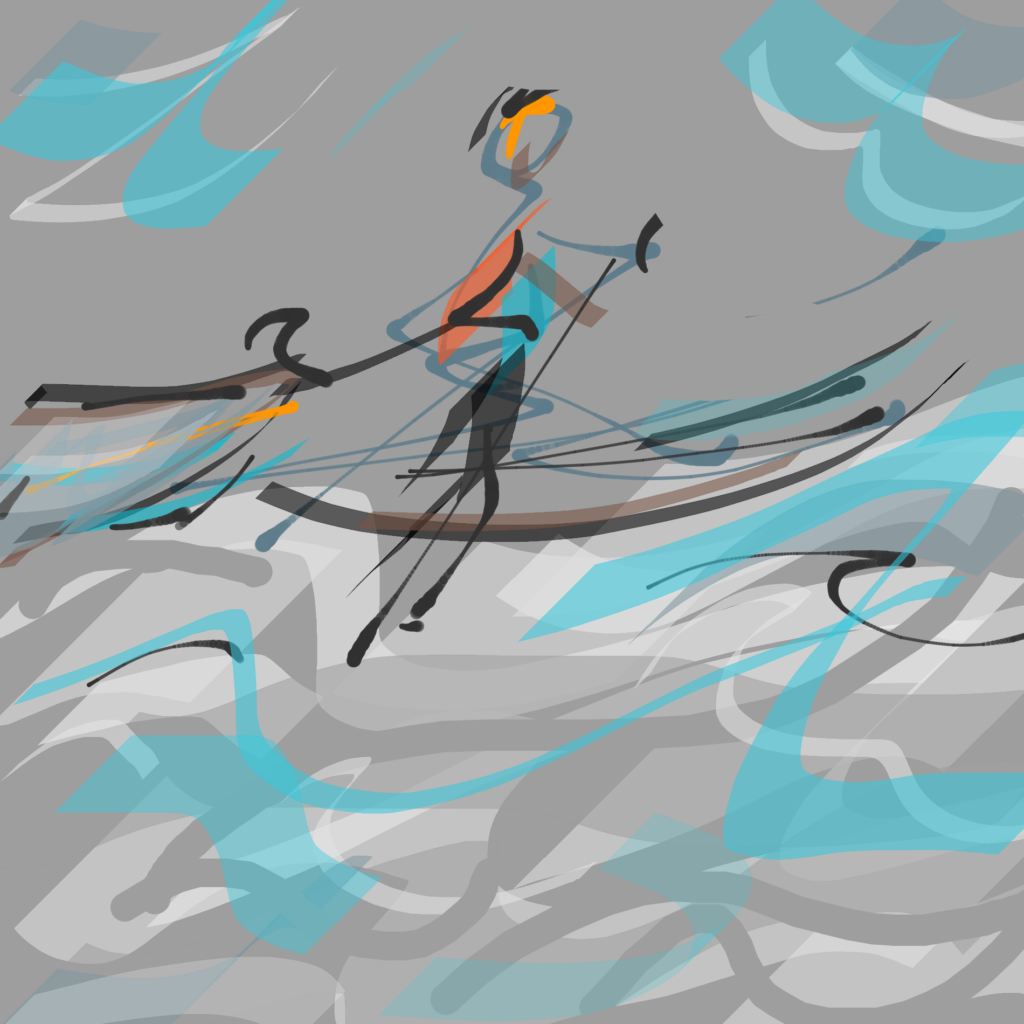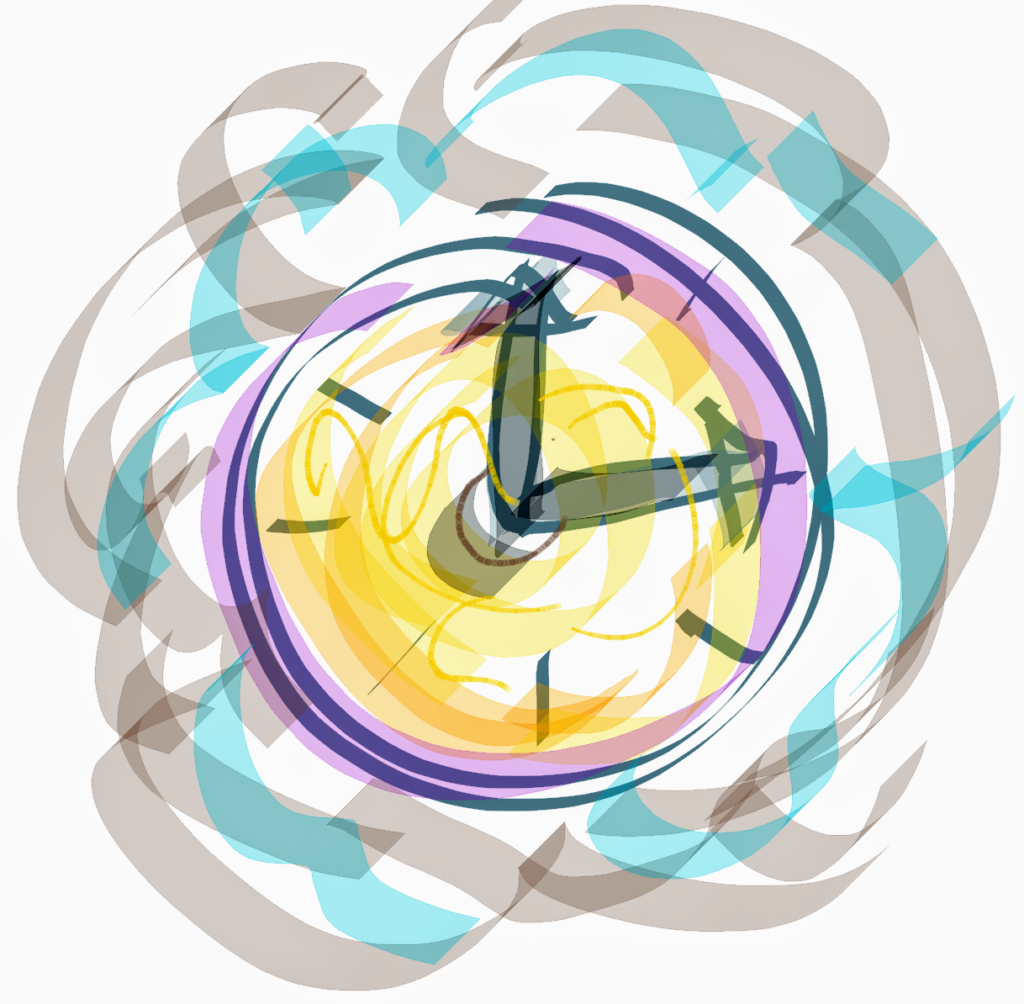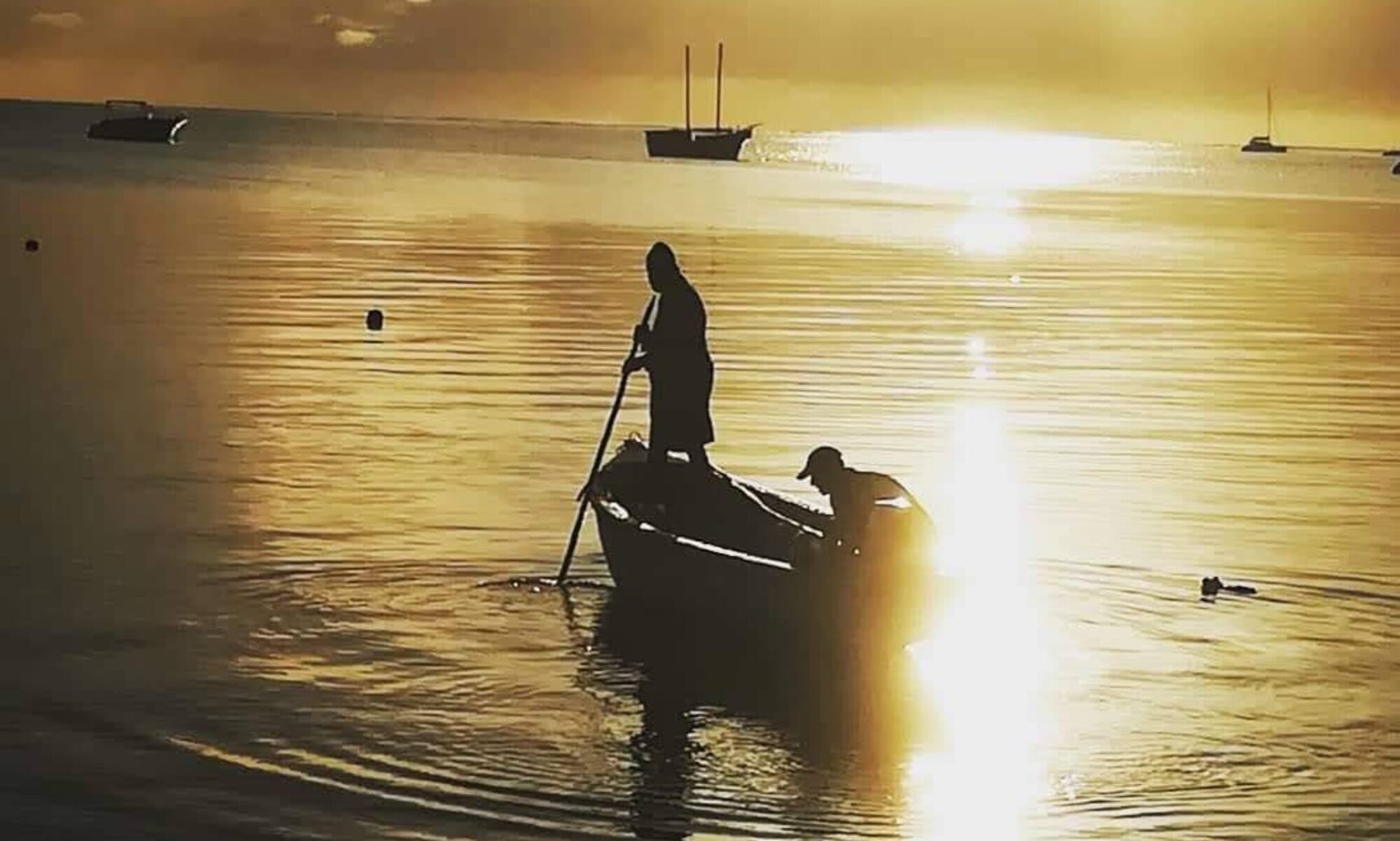
At the start of the year, I saw a cartoon showing a couple of aliens in a spaceship watching the fireworks flash over the earth. “What’s going on down there?” asked one. The other replied: “they’re celebrating their planet making a loop around the sun.” New Year’s is an arbitrary event that we infuse with much meaning. For many of us, it marks an opportunity for a new start. A chance to begin again. A time to try to make things better. But the opportunity for change comes around more frequently than a circuit around the sun. The issue of time revolves around how it is spent.
The Greek myth of Sisyphus is a story of endless punishment using the weight of time. Sisyphus is condemned to rolling a giant rock up a hill to cast it over the top, only to reach close to the summit after a day of pushing and have the stone slip and roll down to the bottom. The next day, he is forced to begin again. I wonder what Sisyphus felt. He never gave up, determined that he’d one day get the rock over the top. And yet he somehow never changed his actions, repeating the same failed approach day after day.
There is another story from one of my favorite films, Groundhog Day. In the film (spoiler alert if you haven’t seen it), Bill Murray, an arrogant news reporter is somehow forced to live a single day over and over in a small town he detests. At first he tries to escape, then he runs wild and crazy knowing that his actions have no consequences as the day will repeat. In the end, he’s finally redeemed when he chooses the day to make things better for the people he encounters. It is his way out of the endless loop into a life he loves.

I had another encounter with the concept of time that was real and mythical all at once. I had been invited to Chile to receive an award and was seated next to a rather unassuming Norweigan who also was invited to receive an award. He was Erling Kagge, a remarkable adventurer who was the first person to make it to the three poles of the earth — North, South, and Everest. His story was quite remarkable. He had travelled to Antartica to ski to the South Pole solo. On arriving, he disposed of his satellite phone battery so he’d be truly alone. To make the journey with the food he could carry, he had to ski 16 hours a day for 50 days across the endless terrain. I asked him what happened to his mind in this time of being alone, skiing endlessly over an endless terrain. He said his mind just emptied. He was one with nature, the way a tree is alive, present, and growing quietly. This is a target state in mindfulness, to achieve a blissful state of just being in the present.
In the mindfulness teachings, the message is that all we have is now — the present. In the Power of Now and Be Here Now, we are reminded that we only exist in the present and we often miss it reliving in the past or planning for the future. But what do you do when the present is what you want to escape from?
There is a lesson about this in another one of my favorite films is the Damma Brothers. It focuses on a group of prisoners in a maximum-security prison who are locked up for life. They are angry and trapped. Many feel that they don’t deserve their punishment. In the film, they learn to meditate using Vipassana and find a measure of freedom. While still locked in prison, they find a place of peace and joy within themselves to escape to. The endless weight of time is lifted.

Truth is that we don’t know how much time we have. But we have a choice about what we do with our time. Do we act like Sisyphus, helplessly bound to fate and routine? Do we choose to be like Bill Murray at the end of Groundhog Day and find meaning in making a better life for others? The choice of focus on the outer world is also contrasted by the choice to tune inwards. In Vipassana, the teacher Goenka repeats the catchphrase at the beginning of each session: “Start Again.” Every moment — not just the New Year — is an opportunity to start again. This echoes words attributed to the Buddha, “Each day we are born again. It is what we do today that matters most.”
In the end, it’s not just what we do with time but also how we engage it. Sisyphus perhaps found meaning in his endless pursuit as much as the Norweigan skier did and the prisoners did by shifting their mindframe. The Bill Murray character transformed his endless day through a simple but profound shift in mindset. The day that dawned as a result was the same and yet completely different. This in the end is the power we have over time. We can’t stop time but we can still ourselves. We thus transform from being slaves of the clock to masters of our days.
Related post:
An Encounter with Eternity
https://medium.com/@lyndonrego/an-encounter-with-eternity-27437f7f6909
